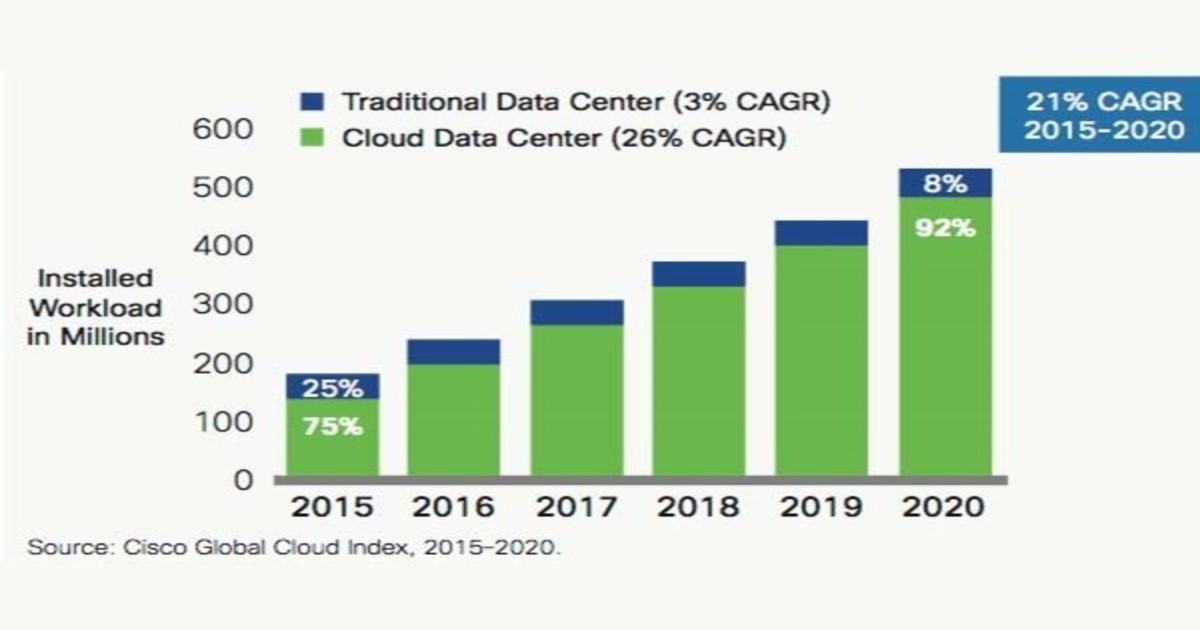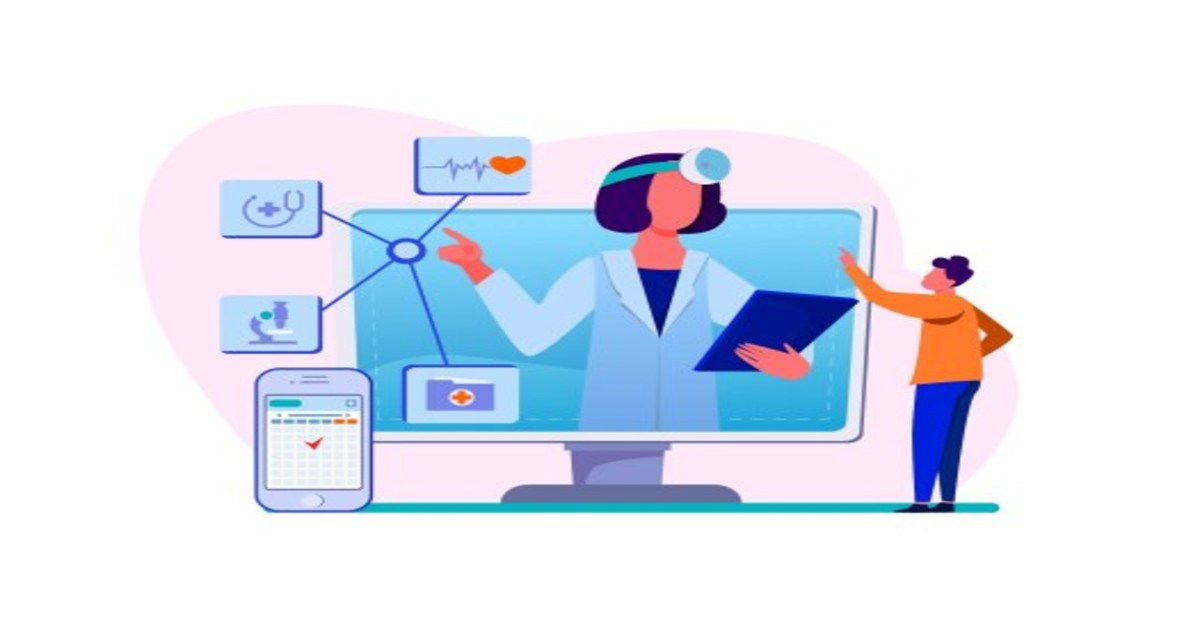
Digital Healthcare
Article | November 29, 2023
Over the past twenty-five years most businesses have been revolutionized by the easy availability of cloud and mobile-based computing systems. These technologies have placed power and access into the hands of employees and customers, which in turn has created huge shifts in how transactions get done. Now the companies with the highest market value are both the drivers of and beneficiaries of this transition, notably Apple, Facebook, Amazon and Alphabet (Google), as well as their international rivals like Samsung, Baidu, Tencent and Alibaba. Everyone uses their products every day, and the impact on our lives have been remarkable. Of course, this also impacts how businesses of all types are organized. Underpinning this transformation has been a change from enterprise-specific software to generic cloud-based services—sometimes called SMAC (Social/Sensors/Mobile/Analytics/Cloud). Applications such as data storage, sales management, email and the hardware they ran on were put into enterprises during the 80s and 90s in the client-server era (dominated by Intel and Microsoft). These have now migrated to cloud-based, on-demand services.
Read More

Health Technology, Digital Healthcare
Article | July 14, 2023
Explore latest hospital industry trends driving digital transformation, data analytics, and patient-centric care for improved outcomes and personalized experiences in a dynamic healthcare landscape.
Contents
1. Understanding Dynamic Hospital Industry Trends
2. Significance of Keeping Up with Hospital Industry Trends
3. Quick Glance at Latest Hospital Industry Trends
3.1 Cybersecurit
3.2 Virtualization and ML capabilities
3.3 Telehealth and Telemedicine
3.4 Robotics
3.5 Wearables
4. Future Scope
1. Understanding Dynamic Hospital Industry Trends
The hospital industry is undergoing dynamic changes driven by digital transformation, data analytics, and patient-centric care. Hospitals are adopting technologies like electronic health records (EHRs) and telemedicine while leveraging data analytics and artificial intelligence for better insights. Patient engagement and personalized healthcare experiences are prioritized. The shift towards value-based care and proactive population health management is evident. Collaboration, interoperability, and preventive care initiatives are also gaining importance. These emerging trends in healthcare technology reflect the industry’s commitment to improving patient outcomes in an evolving landscape.
2. Significance of Keeping Up with Hospital Industry Trends
Staying up-to-date with the latest trends in healthcare industry is of utmost importance for professionals and organizations. It enables them to deliver improved patient care by implementing cutting-edge technologies and treatment methodologies. Hospitals can streamline processes, reduce costs, and allocate resources effectively by adopting industry trends focused on operational efficiency. Keeping pace with industry trends also provides a competitive advantage, helping hospitals attract and retain patients, maintain their reputation as innovative institutions, and outperform competitors. Furthermore, staying informed about evolving regulations and compliance standards ensures hospitals remain compliant, avoiding penalties and legal issues. Industry trends also reflect the changing demographics of patient populations, allowing hospitals to adapt their services and offerings accordingly. This knowledge aids in strategic decision-making, enabling administrators to align their strategies with the evolving healthcare landscape. Additionally, staying updated on industry trends facilitates collaboration and partnerships, promoting innovation and improved healthcare delivery.
3. Glance at Latest Hospital Industry Trends
The hospital industry is experiencing a wave of the latest trends reshaping the healthcare delivery landscape. From technological advancements to shifting patient needs and evolving care models, these trends drive significant changes in how hospitals operate and provide care.
3.1 Cybersecurity
Taking the lead in hospital industry trends is cybersecurity, which plays a vital role in safeguarding the industry against cyber threats and protecting patient information, sensitive data, and critical infrastructure. By implementing a robust hospital cybersecurity policy, patient data confidentiality, integrity, and availability can be ensured, along with mitigating the financial and reputational damages that can arise from cyberattacks. Furthermore, cybersecurity measures enable the continuity of healthcare services and foster patient trust. Prioritizing cybersecurity helps hospitals maintain compliance with data protection laws like HIPAA and strengthen relationships with patients and other stakeholders.
3.2 Virtualization and ML Capabilities
Next in line with hospital industry trends is the adoption of virtualization and machine learning (ML) capabilities that are revolutionizing healthcare operations and patient care. Virtualization allows hospitals to optimize infrastructure, reduce costs, and enhance resource utilization by creating virtual instances of hardware and software. Concurrently, ML algorithms analyze vast amounts of healthcare data, such as electronic health records and medical images, enabling accurate diagnoses, personalized treatments, and predictive insights. The integration of virtualization and ML facilitates remote healthcare services, ensures data security and privacy, and drives operational efficiency, ultimately leading to improved patient outcomes and streamlined healthcare delivery.
3.3 Telehealth and Telemedicine
The rapid adoption of telehealth and telemedicine, which will transform healthcare delivery, is on the horizon for the hospital industry. These technologies enable convenient access to healthcare services, especially for individuals in remote areas, reducing travel time and costs. Telehealth and telemedicine improve healthcare efficiency by reducing wait times, allowing timely medical advice, prescription refills, and follow-up care. They also facilitate collaboration among healthcare providers and specialists, ensuring access to specialized care. In emergencies, telehealth and telemedicine in the hospital industry enable real-time triage and remote monitoring. Despite challenges related to regulatory compliance and data security, telehealth and telemedicine have transformed healthcare delivery, offering convenience, efficiency, and expanded access to care.
3.4 Robotics
The integration of hospital robotics is reshaping the industry, revolutionizing surgical procedures by enabling exceptional precision and significantly reducing recovery times. Surgical robots assist in complex surgeries, improving accuracy and patient outcomes. Additionally, robots streamline tasks like medication dispensing and inventory management, reducing errors and freeing up healthcare professionals. Rehabilitation robots aid patients in regaining mobility, while robotic telepresence enables remote consultations and monitoring. Despite challenges such as implementation costs and regulatory considerations, robotics continues to transform healthcare delivery, enhancing patient care and operational efficiency.
3.5 Wearables
The widespread adoption of wearables, emerging prominently in the hospital industry, redefines patient care and monitoring practices. Wearable devices, such as smartwatches, fitness trackers, and remote patient monitoring devices, offer real-time health data and enable continuous monitoring of vital signs, activity levels, and sleep patterns. These devices provide valuable insights into a patient's health and allow for early detection of potential health issues. Wearables promote patient engagement and empowerment by encouraging individuals to manage their health actively. Healthcare professionals can remotely monitor patients' health status, track medication adherence, and intervene promptly if abnormalities are detected. Additionally, wearables offer opportunities for remote patient monitoring, telemedicine consultations, and personalized health interventions.
4. Future Scope
The potential of hospital industry trends in the coming years also encompasses genomics and personalized medicine advancements. With an increasing understanding of genetic factors in health and disease, hospitals can offer tailored treatments based on an individual's unique genetic makeup, leading to a revolution in disease prevention, diagnosis, and treatment. Furthermore, integrating blockchain technology in healthcare is expected to enhance data security, interoperability, and patient privacy, enabling seamless sharing of medical records across healthcare providers. Overall, the horizon of the hospital industry holds immense promise for innovative technologies, data-driven insights, and patient-centric care models, all contributing to the development of a more efficient, accessible, and personalized healthcare ecosystem.
Read More

Health Technology, Digital Healthcare
Article | August 16, 2023
Contents
1. Alexa, Are You There?
2. Digital Assistants-Cum-Doctor-Assistants
3. Toward An AI-Friendly Life!
1. Alexa, Are You There?
If Siri, Alexa, Google Now, or Cortana are your friends, you do not need any special introduction for today’s topic! This is because these digital assistants have become part and parcel of our lives; from completing our minimal tasks to helping us solve our problems, they make our day-to-day life simpler and more manageable. Popularly called AI, Artificial Intelligence is the simulation of human intelligence processes by machines. Similarly, Machine Learning, also called ML, is the capability of a machine to imitate intelligent human behavior.
2. Digital Assistants-cum-Doctor Assistants
The unpredictable pandemic years, which took thousands of lives, depict the rise of complexities in the healthcare industry. To deal with such cases in the future tactfully, the healthcare segment needs to be proactive and implement advanced technologies to detect, resolve, and prevent untimely death. Modern technologies such as Artificial Intelligence and Machine Learning help the medical fraternity perform tasks usually done by humans quickly and accurately, saving much time that can be utilized elsewhere.
Let’s take a quick tour of how AI and ML can boost the healthcare industry:
Artificial Intelligence can broadly scan patient databases or consult patients via a chatbot or online support system to understand their symptoms, send data to doctors, and get real-time diagnoses and prescribed medicines.
Machine Learning, a subset of AI, can replace traditional processes with a supervised one, as in, a patient can be treated based on similar symptoms and treatment of other patients. The process requires a quick scanning of the database, which can be time-consuming if done by human effort.
Taking technology by storm, patients suffering from neurological disorders can be treated via Brain-Computer Interfaces (BCI) backed by AI. With the help of this technology, normal bodily functions, such as the ability to move, speak or react, can be restored. It can also assist doctors in treating patients with strokes, locked-in syndrome, etc.The healthcare segment is revolutionizing, as sensitive operations such as heart surgery are being performed with robotic precision and control with AI-based algorithms. For this purpose, precision machine learning processes are being used to train robots and improve accuracy.
AI can also help in digital pathology. Instead of placing separate slides or tissue blocks and observing them manually, pathologists can do it via AI, which can help analyze digital slides using image analysis and machine learning.
3. Toward an AI-friendly Life!
If you never forget to wear a smartwatch, track daily steps, get water intake notifications, eat mindfully, and consistently monitor pulse rates, then you are already AI-friendly! You have successfully incorporated AI into your life and taken the first step towarda healthy life!
Read More

Article | April 13, 2020
Before we discuss the importance of telehealth and how it is changing the nursing industry in general, it is important to understand what telehealth is all about. With the advent of new-age technologies and their impact on the fast-paced, growing population, medical health is an essential department that requires special attention. One’s health is of utmost importance, and to enhance the medical facilities, we as responsible citizens and experts in this particular field must come up with novel and quick solutions to provide optimum precaution and cure. Hence, one of such technological achievements is telecommunication,s and by utilizing such a useful resource, health-related services too can be offered. Telehealth promotes the distribution of various services related to medical health through electronic devices and telecommunication technologies. What can one possibly do if he or she lives in a different country and is pushed to an emergency situation where he requires medical advice from a physician who lives in another corner of the world? Of course, through telecommunication devices, the whole process of exchanging information becomes smoother and easier. Several health-related services such as medical advice, medical care, monitoring, education, remote admissions, and intervention can be extended to a long-distance patient with the help of telehealth facilities. Hence, the contemporary picture of health and medicine has been radically improved with the introduction of these electronic telecommunication systems.
Read More